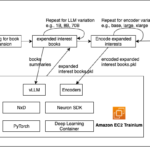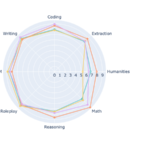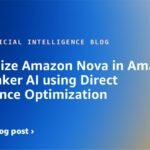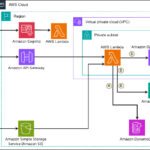Noodoe is a global leader in EV charging innovation, offering advanced solutions that empower operators to optimize their charging station operations and provide exceptional user experiences. Their universal charging stations are compatible with all EV brands and feature intuitive payment options, including credit cards and Apple Pay. Powered by the Noodoe EV OS cloud management system, the company delivers round-the-clock automated monitoring, diagnostics, and maintenance, achieving a market-leading uptime of 99.83%. With operations in over 15 countries and a robust commitment to sustainability, Noodoe is transforming the EV charging industry through cutting-edge technology and a user-first approach.
Despite its technological strengths, Noodoe has encountered key challenges in helping station operators optimize performance and select the most cost-effective electricity pricing strategies across diverse markets. Traditional systems lack the capability to efficiently process vast amounts of real-time and historical data or provide personalized, station-level recommendations. This limits operators’ ability to make timely, informed decisions—resulting in higher electricity costs, underutilized assets, and a subpar customer experience. These inefficiencies not only reduce profitability but also hinder the ability to scale in a competitive and fast-evolving EV charging landscape.
To solve this, Noodoe has integrated large language models (LLMs) through Amazon Bedrock and Amazon Bedrock Agents to deliver intelligent automation, real-time data access, and multilingual support. These AI-powered tools analyze usage patterns, station diagnostics, and external variables like weather or grid conditions to generate highly tailored pricing recommendations. By using the structured orchestration and prompt-based reasoning of Amazon Bedrock, Noodoe equips operators with actionable insights that improve margins, enhance station utilization, and allow them to offer more competitive rates to users—ultimately boosting customer satisfaction. This service is delivered through a subscription model, creating a new, scalable revenue stream for Noodoe while reinforcing its leadership and innovation in the EV infrastructure space.
In this post, we explore how Noodoe uses AI and Amazon Bedrock to optimize EV charging operations. By integrating LLMs, Noodoe enhances station diagnostics, enables dynamic pricing, and delivers multilingual support. These innovations reduce downtime, maximize efficiency, and improve sustainability. Read on to discover how AI is transforming EV charging management.
Solution overview
The Noodoe AI-enhanced diagnostics flow is built on a multi-step process that combines data collection, AI-powered analytics, and seamless translation for global accessibility, as illustrated in the following figure.

The physical charging station network currently operates over 1,000 sites across more than 20 countries, with plans to expand by more than 50 additional sites by the end of 2025. As illustrated in the following image, it uses the EV Cloud and LLMs to generate relevant recommendations following backend processing.

The following screenshot shows an example of the results in the UI.
 Overview of Noodoe AI-enhanced diagnostics
Overview of Noodoe AI-enhanced diagnostics
The following diagram illustrates the solution data flow.

To meet the feature requirements, the system operation process includes the following steps:
- Charging data is processed through the EV service before entering the database.
- The charging history data and pricing data are stored in the EV database.
- Amazon EventBridge Scheduler periodically triggers the EV service to perform analysis.
- The EV service calls the AI service to analyze historical data and provide pricing recommendations.
- The AI service collects the organized historical data to prepare the prompt template.
- This information, combined with appropriate prompts, is used in conjunction with Amazon Bedrock Agents as an AI-pricing agent to extract relevant information. The AI-pricing agent analyzes this combined data to identify daily peak and off-peak periods and provide recommendations for user pricing plans.
- Optionally, if translation is needed for non-English users, these results from the AI-pricing agent are further processed through another Amazon Bedrock agent for translation.
- Optionally, the translation agent uses Anthropic’s Claude Sonnet 3.5 on Amazon Bedrock to get the result in the corresponding language.
- Finally, the AI service collects the results in the user’s language for formatting and other processing, then inserts them into a template to create a comprehensive report that is pushed to the user’s end.
In the following section, we dive deep into these steps and the AWS services used.
Architecture of Noodoe AI-enhanced diagnostics
Noodoe faced key challenges in building a globally scalable, reliable, and cost-efficient architecture. They needed a solution that could support rapid expansion, handle high data volumes, and deliver consistent performance across AWS Regions. Addressing these requirements required careful architectural planning to provide flexibility and resilience.
 The following diagram illustrates the solution architecture Noodoe built to overcome these challenges to support global growth.
The following diagram illustrates the solution architecture Noodoe built to overcome these challenges to support global growth.
The EV charging optimization platform structures the data flow across multiple AWS services, providing efficient data ingestion, processing, and AI-driven decision-making. Amazon Elastic Kubernetes Service (Amazon EKS) retrieves data from Amazon DocumentDB, processes it, and invokes Amazon Bedrock Agents for reasoning and analysis. This structured data pipeline enables optimized pricing strategies and multilingual customer interactions. By using containerized applications, event-driven workflows, and AI capabilities, the system provides scalable and flexible insights to EV station operators.
Data ingestion and processing
EV charging stations send real-time charging data to AWS IoT Core, which acts as the initial entry point for data processing. The data is then transmitted to Amazon Managed Streaming for Apache Kafka (Amazon MSK) to facilitate high-throughput, reliable streaming. From Amazon MSK, data flows into Amazon EKS, where the EV service processes it before storing the charging history and trend records in DocumentDB. This structured storage provides efficient retrieval for analysis and prediction.
AI-powered pricing analysis
To optimize pricing strategies, Amazon EventBridge triggers a pricing prediction function at regular intervals. This function retrieves historical charging data from DocumentDB and sends it, along with predefined prompts, to the Amazon Bedrock AI-pricing agent. The AI agent, powered by Anthropic’s Claude on Amazon Bedrock, evaluates station usage trends, peak and off-peak periods, and pricing inefficiencies to generate optimal pricing recommendations. Although the pricing agent doesn’t access an Amazon Bedrock knowledge base or trigger action groups, it uses preprocessing and post processing features to refine predictions and improve decision-making.
Multilingual support and report generation
If translation is required, the pricing analysis results are forwarded to the Amazon Bedrock translate agent, which converts the insights into the operator’s preferred language. The translated and structured data is then formatted into a predefined report template and stored in a designated database for later retrieval. This provides seamless access to actionable insights across diverse markets.
UI, monitoring, and performance optimization
Operators access the system through a web-based UI, with Amazon Route 53 and Amazon CloudFront providing fast and efficient content delivery. An Application Load Balancer distributes incoming requests across multiple EKS instances, providing high availability. To optimize performance, Amazon ElastiCache accelerates data retrieval while reducing database load. For system monitoring and observability, Amazon CloudWatch provides additional monitoring and observability. The administrator of Noodoe uses Amazon Managed Service for Prometheus and Amazon Managed Grafana for system monitoring and visualization.
This architecture empowers Noodoe with an AI-driven, scalable, and intelligent EV charging management solution, enhancing station utilization, revenue optimization, and customer experience worldwide.
Summary
The Noodoe AI-enhanced diagnostics flow transforms EV charging operations by integrating Amazon Bedrock Agents, blending rule-based automation, real-time user input, and LLM-powered insights for smarter decision-making. Backed by a comprehensive knowledge base and streamlined APIs, the solution empowers operators to automate workflows, optimize pricing, and boost station performance at scale. Ongoing expansion of the knowledge base, workflow refinement, and real-world testing further improve efficiency and reliability. This approach has delivered a 15% increase in revenue and reduced implementation time by 10%. Continuous feedback and clear documentation equip users to effectively use AI-driven diagnostics for more intelligent charging management.
Roman Kleinerman, Vice President of Products at Noodoe, shares: “We’ve seen revenue increases of 10–25% depending on the location and number of stations, as customers use our Al solution to optimize pricing strategies.”
Noodoe is dedicated to delivering smarter, more intelligent EV charging services that benefit both end-users and operators. Currently, Noodoe operates over 1,000 charging sites across more than 20 countries, with plans to expand by more than 50 additional sites by the end of 2025. Looking ahead, the system is being enhanced to support near real-time dynamic pricing optimization by incorporating factors such as demand, grid conditions, time of day, and weather. Amazon Bedrock Agents help enable these intelligent capabilities, powering dynamic pricing, load balancing, and grid-aware routing to optimize energy distribution and guide users to the most efficient stations. Future enhancements will offer personalized charging recommendations and incentives based on user preferences, maximizing value for both customers and operators. Start building intelligent, AI-powered EV charging solutions with Amazon Bedrock.
About the Authors
 Ray Wang is a Senior Solutions Architect at AWS. With 12 years of experience in the IT industry, Ray is dedicated to building modern solutions on the cloud, especially in NoSQL, big data, machine learning, and Generative AI. As a hungry go-getter, he passed all 14 AWS certificates to make his technical field not only deep but wide. He loves to read and watch sci-fi movies in his spare time.
Ray Wang is a Senior Solutions Architect at AWS. With 12 years of experience in the IT industry, Ray is dedicated to building modern solutions on the cloud, especially in NoSQL, big data, machine learning, and Generative AI. As a hungry go-getter, he passed all 14 AWS certificates to make his technical field not only deep but wide. He loves to read and watch sci-fi movies in his spare time.
 Howard Su is a Solutions Architect at AWS. With many years of experience in software development and system operations, Howard have served in various roles including RD, QA, and SRE, and Howard have been responsible for the architectural design of numerous large-scale systems, as well as participating in several cloud migrations. After accumulating years of development and operations experience, Howard is dedicated to promoting cloud-native service technologies and becoming an advocate for DevOps.
Howard Su is a Solutions Architect at AWS. With many years of experience in software development and system operations, Howard have served in various roles including RD, QA, and SRE, and Howard have been responsible for the architectural design of numerous large-scale systems, as well as participating in several cloud migrations. After accumulating years of development and operations experience, Howard is dedicated to promoting cloud-native service technologies and becoming an advocate for DevOps.
 Tony Trinh is a Senior AIML Specialist Architect at AWS. With 13+ years of experience in the IT industry, Tony specializes in architecting scalable, compliance-driven AI and ML solutions—particularly in generative AI, MLOps, and cloud-native data platforms. As a perpetual learner, he’s doing research in Visual Language Model, Responsible AI & Computer Vision and authoring a book in ML engineering. In his spare time, Tony enjoys outdoor activity, experimenting with home improvement, and exploring Melbourne’s vibrant coffee scene.
Tony Trinh is a Senior AIML Specialist Architect at AWS. With 13+ years of experience in the IT industry, Tony specializes in architecting scalable, compliance-driven AI and ML solutions—particularly in generative AI, MLOps, and cloud-native data platforms. As a perpetual learner, he’s doing research in Visual Language Model, Responsible AI & Computer Vision and authoring a book in ML engineering. In his spare time, Tony enjoys outdoor activity, experimenting with home improvement, and exploring Melbourne’s vibrant coffee scene.











